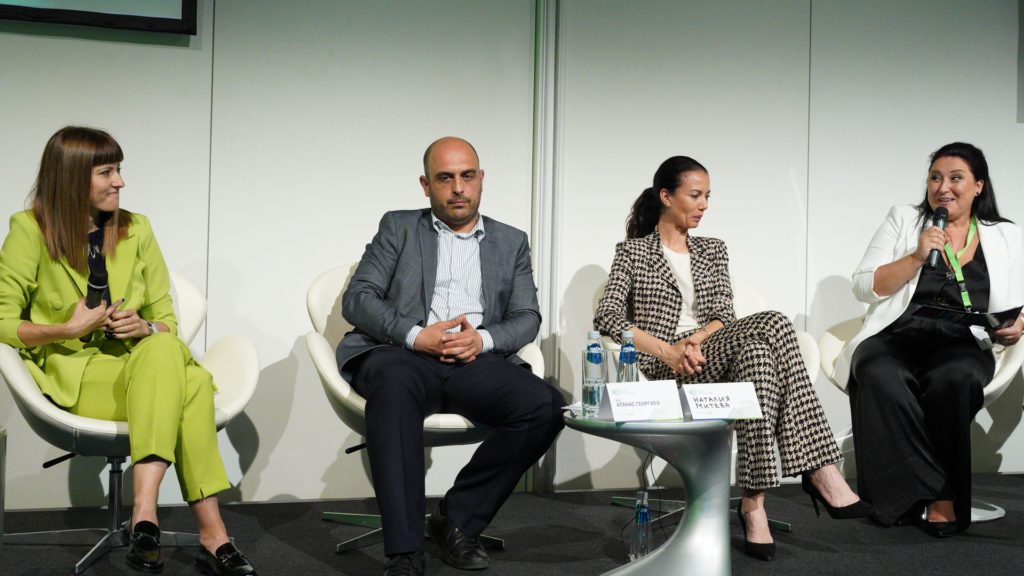Can Central and Eastern Europe (CEE) become a hub for green innovation and what needs to happen so we get there? The upcoming 4th edition of the Green Transition Forum, scheduled for June 26-28, 2024, promises to be a catalyzing event aimed at answering the question from multiple perspectives.
This conference, the largest of its kind in CEE, will bring together over 750 CEOs and ministerial speakers from 15+ countries, and more than 2500 attendees. The goal is to create a comprehensive dialogue on the green transition, ensuring that the journey towards sustainability is inclusive and accessible to an increasingly larger number of people and businesses.
The mission of the event is ambitious yet essential: to redefine the global perspective of the CEE region, making it a hub for sustainability and economic growth. The forum seeks to unite key stakeholders, including political leaders, business executives, researchers, and experts, to foster transformative change. By sharing exemplary practices and addressing the challenges and issues that accompany the green transition, the event aims to make sustainability a core part of the region’s future.
Key topics to be discussed include green financing, energy transition, bio-agriculture and food security, digitalization and cybersecurity, the social dimensions of a just transition, and regional cooperation.
Innovative Green Companies in CEE
CEE has already built a number of innovative and successful companies leading the green transition. Notable examples include Rimac Automobili and Ampeco in the automotive sector, CWP and Resalta in renewable energy development, Abraxa and Harbor Lab in the maritime industry, Augmenta, Nasekomo, Better Origin, and Agrivi in agritech, and ElevenEs in battery technology. These companies are at the forefront of the green transition, showcasing the region’s potential to lead in sustainable innovation.
On the consumer level, Greece has been making steps towards renewable energy communities like Hyperion, which allow citizens to generate and exchange their own energy, reducing bills in the process.
That said, according to CORDIS, CEE countries have lagged behind in meeting the EU’s climate goals compared with Western Europe. So, obviously, there’s still significant space for improvement – especially on the local levels.
Participants and Key Figures
The forum will feature an impressive lineup of participants, ranging from political representatives and policymakers to renowned figures in the green tech ecosystem. Notable attendees include three EU Commissioners as well as John Kerry, former United States Secretary of State and U.S. Special Presidential Envoy for Climate.
We will also see participation from some of the most well-known names in the green tech ecosystem in CEE, including Lubomila Jordanova, Founder & CEO of Plan A, Sasha Bezuhanova, Founder of Move.bg, Matija Zulj, CEO & Founder of Agrivi, Dimitar Enchev, Co-Founder and Director at CWP Global, Gergana Stancheva, Co-Founder and COO of Lam’on, Pavel Lisev, CEO and Management Board Member of FMFIB, and Max Gurvits, Managing Partner at Vitosha Venture Partners.
Sessions on Focus
On the third day of the event, there will be a special session titled “Unlocking Potential: Driving Innovation in Central and Eastern Europe,” moderated by Irina Obustarova, Co-founder and CEO of The Recursive. The session will feature Iliana Ivanova, European Commissioner for Innovation, Research, Culture, Education, and Youth; Rosen Karadimov, Minister of Innovation and Growth, Bulgaria; Svetoslava Georgieva, Chair of the EIC Fund Board; and Jason King, CEO of Yettel.
Additionally, a “Fire Chat: Innovation Horizons: Exploring CEE’s Path to Global Competitiveness” will be held with Marc Lemaitre, Director-General for Research and Innovation (RTD) at the European Commission, and Svilen Rangelov, Co-Founder and CEO of Dronamics. This session will be moderated by Milena Stoycheva, CEO of Junior Achievement Bulgaria and former Minister of Innovation and Growth.

Recent Developments in European Green Tech
The forum comes at a time of significant developments in European green tech. Recently, the European Union governments cleared a new law designed to ensure the bloc produces 40% of its solar panels, wind turbines, heat pumps, and other clean tech equipment. This move is a critical step towards boosting the EU’s capacity to produce essential green technologies domestically.
Moreover, European climate tech brought in $18 billion in funding in 2023, according to Dealroom.
However, there are concerns about the EU’s performance in attracting venture capital for transport-related solutions, such as fuel cells, electric powertrains, EV charging infrastructure, ammonia as fuel, and advanced biofuels. Despite clean mobility being one of the fastest-growing sectors worldwide, innovative EU companies often struggle to find adequate financing to scale up and commercialize their solutions.
In addition, EU companies capture less investment than the EU average in grid energy management systems (EMS) and prefabricated buildings—two critical areas for enabling smart grids and decarbonizing the building sector. The EU’s trade deficit in building EMS is gradually increasing, reflecting the region’s reliance on imports for digital components and assemblies.
Final words
The Green Transition 4.0 forum represents a unique opportunity for the CEE region to chart a course towards a sustainable future. By bringing together a diverse group of stakeholders, the event aims to foster a rich exchange of ideas and strategies, driving the region toward a future that is sustainable, innovative, and just.
Organized by Dir.bg Media Group, one of the most influential voices in Bulgaria’s online space for over 25 years and 3eNews, a leader in providing expert analysis on
The Green Deal, the forum aims to be a key platform for accelerating the net-zero transformation of economies and industries in the region.








